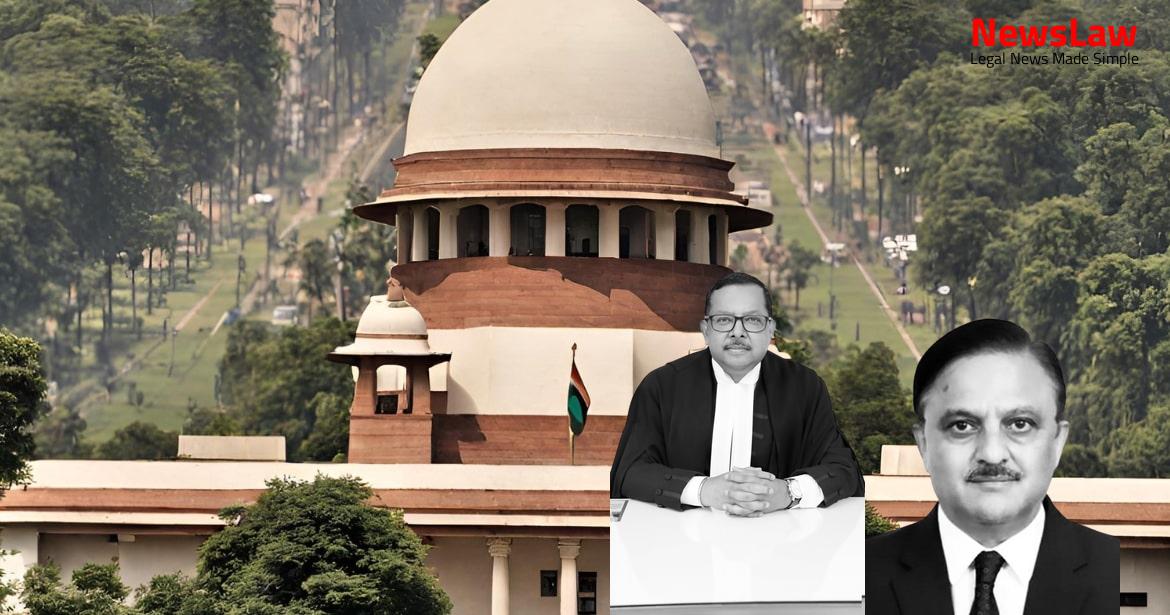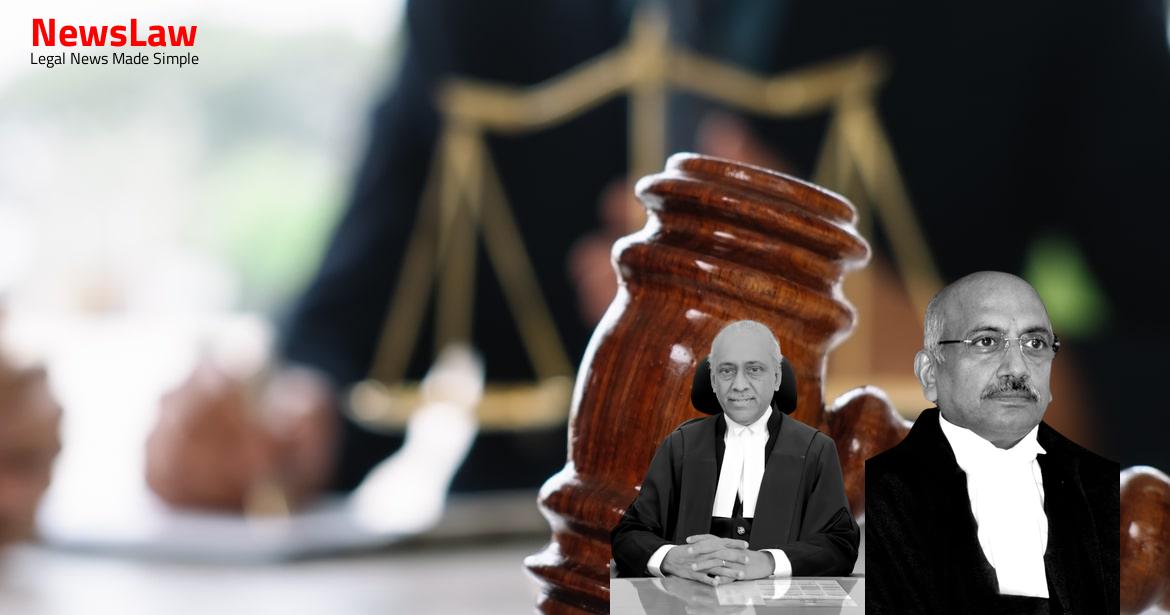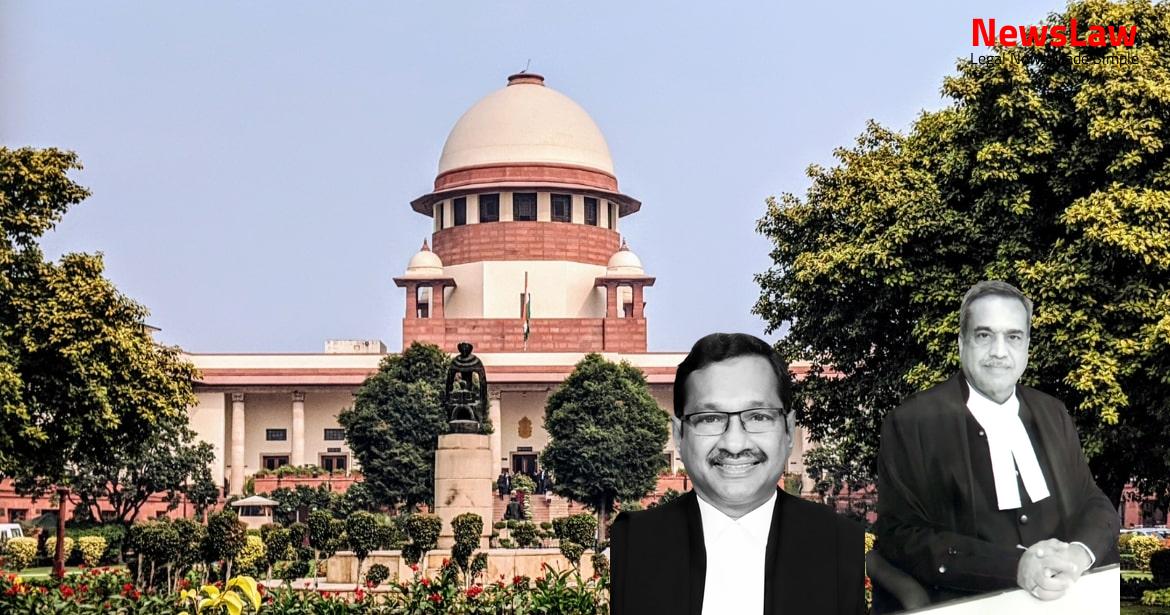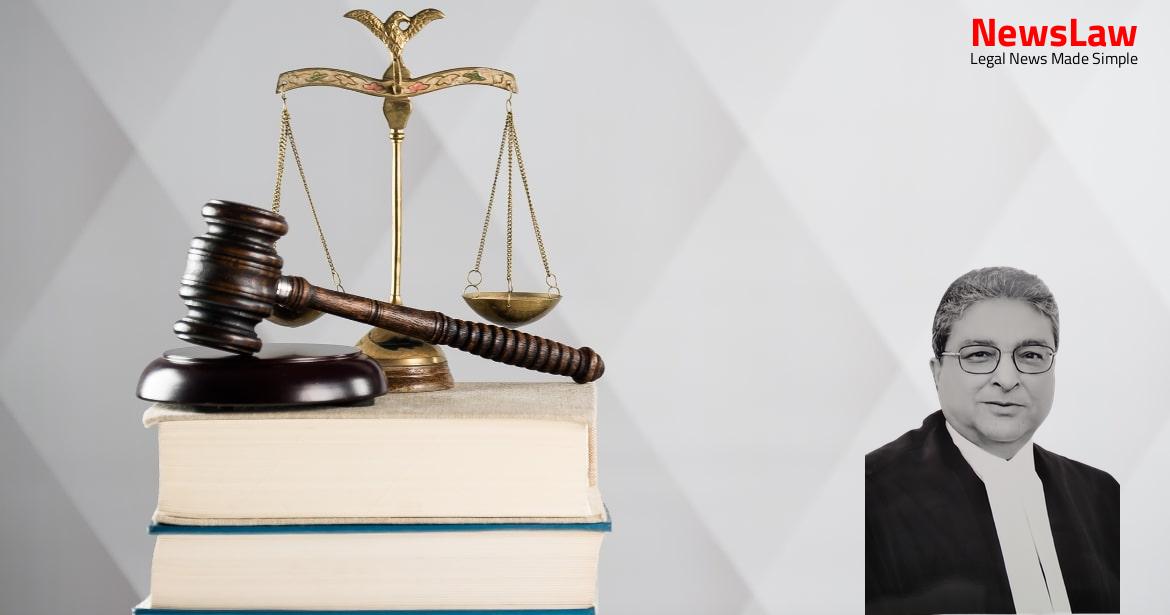In the case of Sungani Bai vs. Sailesh Joshi, a complex legal battle over property ownership has unfolded. The dispute involves the plaintiff claiming ownership through adverse possession against the defendants. Despite facing eviction threats, the plaintiff’s appeals were dismissed by the High Court. Stay tuned to understand how the court analyzed factors like lack of maintenance, unpaid taxes, and the necessity of probate in determining property rights.
Facts
- The suit property was settled by Sungani Bai in a deed of settlement dated December 1, 1945.
- The settlement deed allocated shares to Gopu Bai, Abbey Karan Joshi, and Vijay Kishan Bohra.
- Abbey Karan Joshi was given a 1/3 share during his lifetime, to be passed to his male children upon demise.
- Vijay Kishan Bohra also received a 1/3 share during his lifetime, with the same condition for his male children.
- Sailesh Joshi, the 2nd defendant, is the only son of Abbey Karan Joshi.
- The original owner, Sungani Bai, passed away intestate in 1947.
- The plaintiff filed Suit No. 973 of 1996 seeking a declaration of ownership through adverse possession and permanent injunction.
- The plaintiff’s claim of adverse possession was contested by the 4th and 5th defendants.
- The original owner’s settlement deed specified the succession of shares to the named individuals and their male children.
- The plaintiff faced eviction threats from the defendants, leading to the legal dispute over possession.
- All three appeals by the plaintiff were dismissed by the High Court.
- The finding of the Trial Court regarding the plaintiff’s perfected title by adverse possession was set aside.
Also Read: Customs Valuation Dispute: Appellant vs. Adjudicating Authority
Arguments
- The suit property is in Chennai, making it necessary to obtain probate or letters of administration to claim rights based on the will.
- No rights can be claimed based on the settlement deed dated 1 December 1945 without probate or letters of administration.
- The sale deed dated 29 January 2001 did not pass any right, title, or interest in the suit property to the 3rd and 4th defendants.
- The defendants have no rights in the suit property, making the impugned judgment erroneous.
- The plaintiff has been in continuous possession since at least 1951, establishing adverse possession.
- The document executed on 1 December 1945 by the original owner was a will.
- Dr. Dhavan has submitted that the plea made is subsidiary or an alternate plea
- The plaintiffs do not need to rely on this plea if their main plea on title is proven with evidence
Also Read: Interim Compensation Discretion: Appellant vs. Respondent
Analysis
- The plaintiff’s claim of adverse possession is not adequately pleaded in the plaint.
- The plaintiff failed to establish the commencement date of adverse possession.
- The High Court noted the dilapidated condition of the property and lack of maintenance by the plaintiff.
- Water tax and sewage tax were unpaid for years, as per the High Court’s findings.
- The plaintiff’s complaint to the police in 1995 contradicted his claim of adverse possession.
- The property tax and water tax bills remained in the name of the original owner, establishing the lack of adverse possession.
- The Trial Court and High Court correctly held that the plaintiff did not prove adverse possession.
- The plea of adverse possession must be based on continuous, open, and hostile possession for over 12 years.
- Adequate pleading and evidence are necessary to substantiate a claim of adverse possession.
- The plaintiff’s failure to produce documents showing payment of house tax before 1995 weakened his claim.
- The suit for declaration of ownership based on adverse possession lacked a proper foundation in the plaint.
- The plaintiff’s possession was limited to the front portion of the property, as stated in the complaint filed before the suit.
- To prove the plea of adverse possession, the plaintiff must plead and prove claiming possession adverse to the true owner.
- The plaintiff must plead and establish that the factum of his long and continuous possession was known to the true owner.
- The plaintiff must also plead and establish when he came into possession.
- The plaintiff must establish that his possession was open and undisturbed.
- A party claiming adverse possession seeks to defeat the rights of the true owner, and there is no equity in his favor.
- Law is not readily accepting a plea of adverse possession unless a clear and cogent basis has been made out in the pleadings and established in the evidence.
- An owner is considered to be in possession of a property as long as there is no intrusion according to the law.
- The plaintiff is more than 80 years old.
- The plaintiff has been in possession of at least a part of the suit property since 1995.
- Concurrent judgments have correctly found that the plaintiff failed to prove adverse possession.
- The defendants have a better title to the suit property than the plaintiff, who is considered a trespasser.
- Failure to obtain probate or a letter of administration further supports the defendants’ superior title.
Also Read: Freedom of Speech and Expression in Criticism of Government Actions
Decision
- Decree for possession against the plaintiff confirmed.
- Decree of possession not to be executed until 31 March 2025.
- Appellant and adult family members must file unconditional undertakings on oath to vacate the property.
- Undertakings to be filed within one month.
- Failure to file undertakings will make the possession decree executable.
- Appellant granted longer time to vacate the property despite dismissal of appeals.
- Appeals dismissed with no costs.
Case Title: M.RADHEYSHYAMLAL Vs. V SANDHYA AND ORS. (2024 INSC 214)
Case Number: C.A. No.-004322-004324 / 2024



